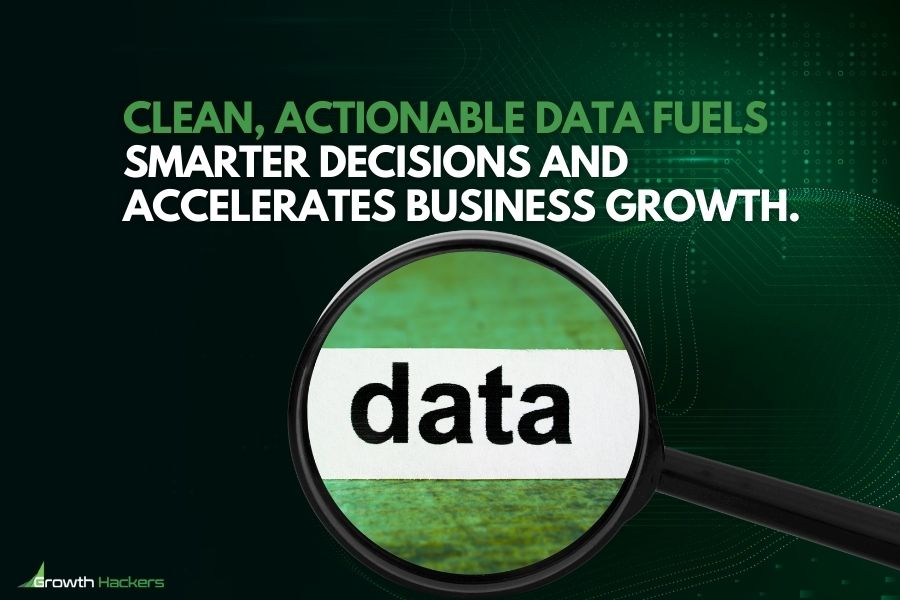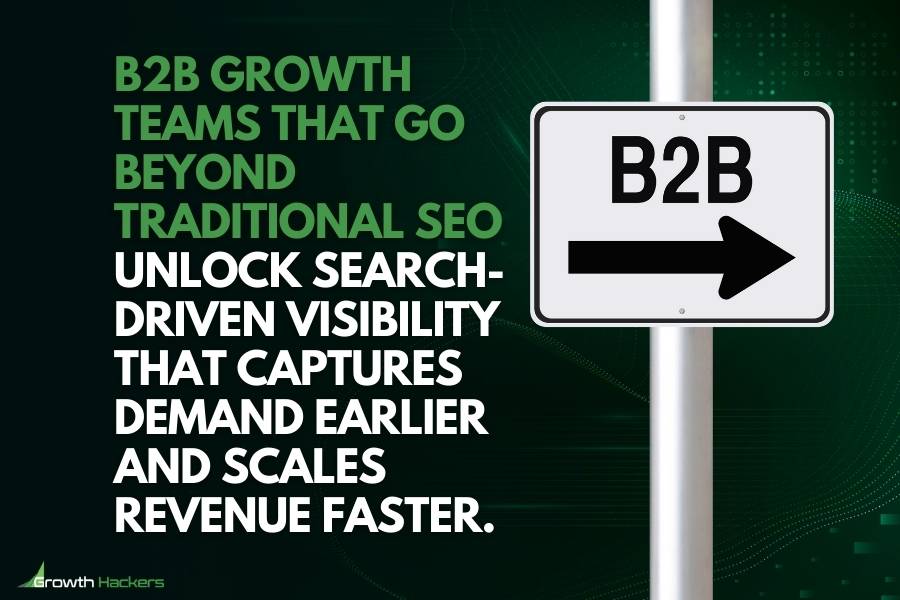The Hidden Cost of Dirty Data
For startups, agility is no longer just a buzzword – it’s a survival skill. The data supposed to help businesses make quick informed decisions frequently turns into an obstacle. Fragmented CRM systems together with inconsistent product analytics and poorly tracked customer journeys generate prolonged technical debt for startups which impedes growth.
When you execute your initial GTM strategy you find incorrect lead mapping while discovering duplicated data in crucial product usage datasets. Dirty data causes issues in decision-making processes while obstructing team alignment and leading strategy astray.
The good news? By adopting scalable, data-first thinking from day one, startups can seamlessly scale operations while maintaining clean, actionable insights. This playbook explores how data hygiene fuels growth, where AI plays a role, and specific steps startups can take now to future-proof their data practices.
What Data-First Looks Like in a Startup
Startups typically operate under conditions that demand rapid testing and development. Inadequate data hygiene practices during early startup phases often lead to disorderly situations. By adopting data-first thinking, startups can maintain control and clarity throughout their scaling process.
Here’s what a data-first approach looks like:
1. Clean Data Pipelines
A well-maintained pipeline allows data to flow smoothly from multiple sources into a single system. Start the procedure by creating organized pipelines to extract customer interactions from a CRM system and gather product usage data from applications along with marketing campaign performance data from marketing platforms.
- Why it matters: Data loss reduction combined with redundancy removal and simplified report generation occurs through the use of clean pipelines. With structured pipelines, your customer success team can monitor churn signals alongside marketing teams, who track content engagement metrics.
- Key tip: Automate data transfers from different systems into a centralized repository using ETL (Extract, Transform, Load) tools such as Fivetran or Stitch.

2. Common Taxonomies
Everyone speaks the same language when taxonomy is consistent. This means defining and documenting company-wide naming conventions for things like customer segments, lifecycle stages, and product metrics.
- Why it matters: Misaligned definitions create confusion among teams. For example, what’s considered a “qualified lead” can differ depending on whether marketing or sales is defining it. Standardized taxonomies eradicate dual interpretations.
- Key tip: Establish taxonomies early and use tools like Confluence to document them for easy access across all teams.
3. Consistent Tracking
Without consistent tracking, startups lose visibility into which initiatives yield results. Tools and platforms can’t work magic if tracking setup is irregular or misconfigured.
- Why it matters: Consistent tracking enables startups to draw accurate insights about product performance or customer behavior, preventing disconnects between data and decision-making.
- Key tip: Implement event tracking frameworks using tools like Amplitude or Segment to maintain consistency as your team grows.
![]()
Are you ready to unlock growth with clean data for startups?
Contact Growth Hackers
The High Price of Poor Data Hygiene: Real-World Startup Consequences
Poor data hygiene isn’t just a behind-the-scenes inconvenience, it’s a direct threat to business growth. Real-world consequences include:
- Missed Revenue Opportunities: Inaccurate segmentation can result in marketing efforts being misdirected to the wrong audience.
- Damaged Customer Relationships: Duplicate records can lead to repeated outreach or wrong personalization, frustrating potential leads.
- Increased CAC: Dirty data forces teams to work harder to achieve the same results, bloating customer acquisition costs.
- Legal and Compliance Risks: With data privacy laws (like GDPR, CCPA) in effect, disorganized or inaccurate data can lead to non-compliance penalties.
💡 Stat to Add: According to Experian, 95% of businesses report that inaccurate data undermines their ability to provide excellent customer experiences.
Where AI Supports Scale
Effective AI data management provides a fundamental base necessary for achieving startup success. Combination of clean data pipelines and standardized taxonomies with effective tracking procedures allows your startup to chase growth opportunities. Maintaining system integrity and efficiency becomes increasingly complex when your business experiences expansion.
Operations that are precisely planned can collapse when they encounter the dual pressures of large data volumes and demands for speed and precision.
Artificial Intelligence transforms your business operations by altering the competitive landscape. Artificial Intelligence allows businesses to scale their data operations while preserving both data accuracy and reliability to generate actionable insights.
Artificial Intelligence enables startups to preserve clean systems and discover intelligent decision-making opportunities at all business growth levels through the automation of routine tasks and the provision of real-time insights and trend identification.

1. Auto-Tagging Events
AI can streamline event tracking by automatically tagging user actions and interactions in real-time.
- Example: Instead of manually categorizing in-app user behaviors like “clicked signup” or “watched tutorial video,” AI can tag these automatically, ensuring consistent categorization. Tools like Heap excel at this.
2. Deduplication and Entity Resolution
Growing startups often deal with duplicate records or inconsistent customer/lead information. AI-powered tools can identify and merge duplicate data, presenting a clear, unified view of your customer base.
- Example: AI-driven deduplication ensures that Jane Doe’s newsletter sign-up doesn’t create separate profiles when she becomes a paying customer, keeping CRM data accurate.
3. Predictive Analytics
AI enables startups to anticipate trends and customer behavior. Through machine learning models, businesses can forecast revenue, identify churn risks, or predict the success of product features.
- Example: Algorithms can analyze product usage patterns to predict which features gain traction with customers, helping product teams prioritize roadmap direction.

Quick Wins for Founders
Not all data improvements require a full-blown data team or advanced infrastructure. Even early-stage founders can implement impactful quick wins that ensure scalable data hygiene. Start with a data detox and figure out how to capitalize on quick wins.
1. Invest in Low-Code Data Tools
Low-code tools offer startups the ability to build powerful, automated workflows without in-depth technical expertise. These can solve a range of issues, from CRM pipeline automations to email marketing workflows.
2. Build a Single Source of Truth
Growing startups must create a single source of truth to promote team alignment and operational efficiency. A single centralized data source for product, sales, and marketing teams eliminates duplication while reducing miscommunication and ensures everyone uses accurate, up-to-date information.
Notion, Salesforce and HubSpot help bring operations together to make decisions more efficiently which results in both time and resource savings. For startups experiencing rapid scaling, having clear reporting and collaboration processes becomes essential because these elements significantly influence their growth and success.
3. Focus on High-Impact Metrics
You don’t need to track everything all at once. Instead, focus solely on quantifiable metrics that directly impact growth, such as Customer Lifetime Value (CLV), Monthly Active Users (MAU), or Customer Acquisition Cost (CAC).

4. Prioritize Cross-Team Alignment
Data hygiene doesn’t just affect operations teams. Your entire startup benefits when everyone is working from the same numbers.
- Host regular meetings where sales, marketing, and product teams align on insights learned from their data.
- Encourage constant communication using integrated project management software like Monday.com or Slack.
5. Experiment Without Sacrificing Consistency
The hallmark of any startup is experimentation. However, ensure processes and data standards stay consistent, no matter how many tests you run. Tools like Optimizely can help test features while feeding clean, unified data into centralized platforms.
Case Study Snapshot: Clean Data in Action
Add a fictional or anonymized mini-case study:
“Startup X, a SaaS tool for remote teams, was struggling with bloated CAC due to fragmented lead data. After implementing a data-first strategy using Segment, Salesforce, and Amplitude, they reduced duplicated leads by 42% and cut CAC by 18% within 3 months.”
This makes your article more relatable and shows measurable impact.
Future-proof your growth—start with clean data for startups.
Work with Growth Hackers
Avoiding Future Pain with Today’s Discipline
Clean data isn’t just a nice-to-have; it’s foundational to the long-term success and scalability of your startup. By investing in data-first thinking today, you’re not only building a discipline for better decision-making but insulating your business from future pain points caused by bad data practices.
Startups that focus on maintaining clean data pipelines together with consistent tracking and unified taxonomies establish a clear path toward efficient scaling and better team alignment while facilitating quicker and more intelligent decision-making.
Maintaining business direction requires startups to investigate AI solutions specifically designed for their needs while adopting scalable strategies from inception. By making these minor choices today you’ll be able to avoid time expenditure and financial loss while preventing major headaches in the future.
When to Bring in a Data Leader
Founders often delay hiring a Head of Data or even a data analyst until Series A. But if you’re:
- Running multi-channel campaigns
- Building detailed product analytics
- Preparing for funding rounds
…it’s time to bring in a data-savvy hire or consultant.
They’ll help you avoid critical mistakes, set up dashboards that actually drive decisions, and scale data practices with confidence.
Real-World Startup Examples
Here’s how startups are solving data hygiene challenges in the real world:
- SaaS company “AlphaTrack” or “Windows 10 License Key” implemented Segment and standard taxonomies across their tools. Within three months, customer churn dropped by 18%.
- E-commerce startup “EcoNudge” used AI deduplication tools to clean their CRM. As a result, they increased their sales conversion rate by 12% because reps no longer wasted time calling the same lead twice.
- HealthTech startup “PulsePilot” integrated Amplitude with standardized event tracking, resulting in improved feature adoption and optimized product updates.
Growth Hackers is a prominent data analytics company helping businesses from all over the world grow. There is no fluff with Growth Hackers. We help entrepreneurs and business owners build robust, clean data systems that fuel smarter decisions, tighter team alignment, and faster, sustainable growth. From boosting productivity and generating qualified leads to optimizing conversion rates, leveraging actionable analytics, and increasing user acquisition and retention—we deliver the tools and strategies to scale your business and accelerate sales. We go further than brand awareness and exposure. We make sure that the strategies we implement move the needle so your business grow, strive and succeed. If you too want your business to reach new heights, contact Growth Hackers today. Let’s discuss your brand and create a custom growth plan tailored just for you. You’re just one click away from skyrocketing your success.





1 Comment
I really loved how this piece highlights the importance of clean, quality data as the bedrock of every growth strategy—such a practical and thoughtful guide for startups wanting to scale smartly!